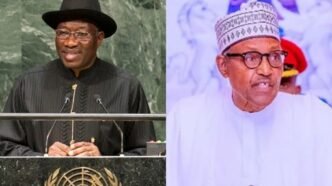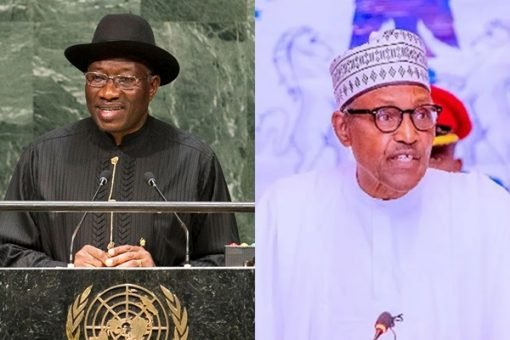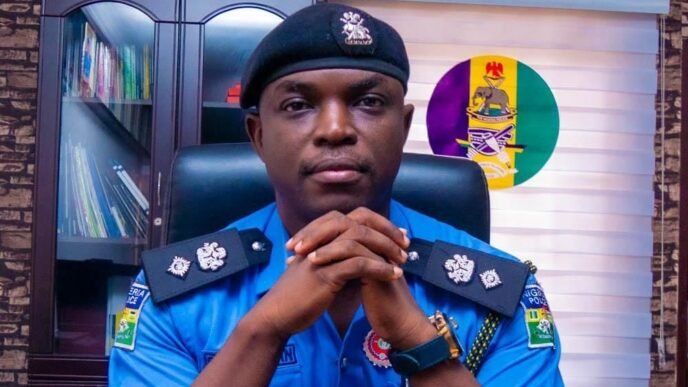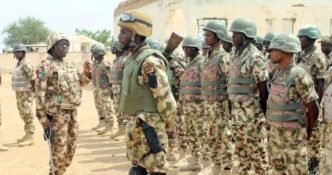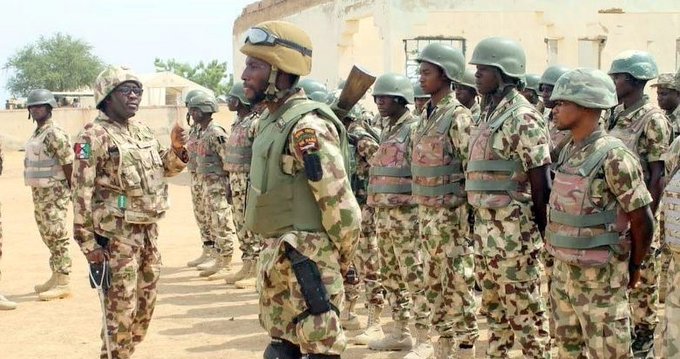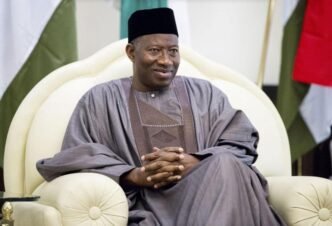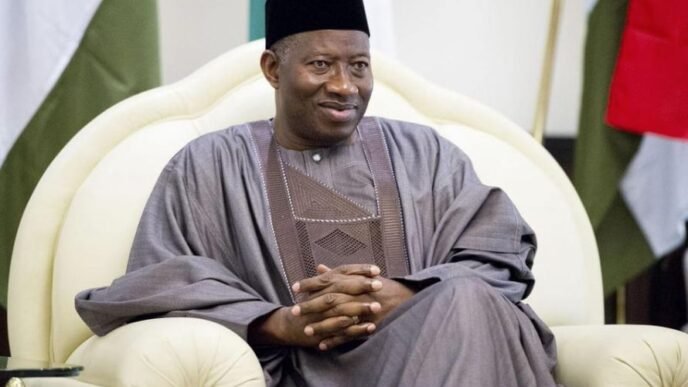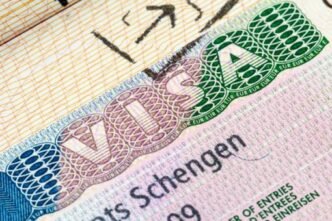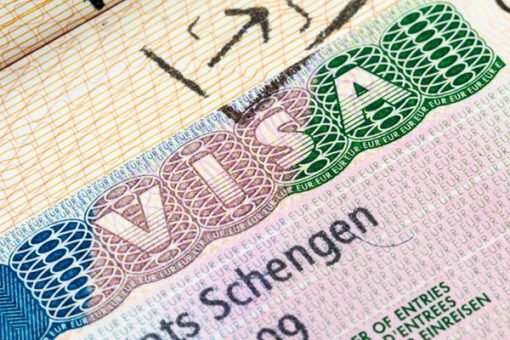Former President Goodluck Jonathan has reignited debate about Nigeria’s handling of the Boko Haram insurgency by revealing that, during his administration, the extremist group allegedly nominated then-opposition leader Muhammadu Buhari to represent them in peace negotiations with the federal government.
The revelation, which Jonathan made at the public presentation of a memoir by former Chief of Defence Staff General Lucky Irabor, has been sharply denied by Buhari’s loyalists, who dismiss it as false and politically motivated. The controversy highlights both the complexity of the Boko Haram conflict and the enduring struggle of Nigerian leaders to balance force with dialogue in tackling one of the country’s deepest security crises.
Jonathan’s Revelation
Jonathan explained that while in office, his government explored multiple approaches to curbing Boko Haram beyond military action. According to him, one of the committees set up to examine dialogue reported that Boko Haram suggested Muhammadu Buhari, then a leading figure in the All Progressives Congress (APC), as their preferred negotiator.
The former president said this nomination convinced him that Buhari, if he had been in office then, might have found it easier to secure a dialogue or surrender from the insurgents. Jonathan stressed that his administration’s attempts included both “carrot and stick” approaches — incentives, dialogue, and military operations.
He added that the 2014 abduction of the Chibok schoolgirls, which shocked the world, remained a permanent scar on his presidency and a reminder of the human toll of the insurgency.
Buhari’s Camp Pushes Back
Almost immediately, Garba Shehu, who served as Senior Special Assistant on Media and Publicity to Buhari, rejected Jonathan’s claim as baseless.
According to Shehu, there was never a time Boko Haram nominated Buhari as mediator. He argued that core Boko Haram leadership, particularly Abubakar Shekau, had consistently opposed Buhari, even targeting him in a 2014 bomb attack in Kaduna that nearly cost him his life.
Shehu acknowledged that a faction once floated Buhari’s name as a possible interlocutor but emphasized that this was never accepted by Boko Haram’s central command. He described Jonathan’s account as misleading and politically timed, suggesting it was an attempt to rehabilitate his own image on insurgency management.
What the Records Show
The facts, when stripped of political rhetoric, point to several important truths and uncertainties:
- Negotiation Attempts: Jonathan’s administration did create committees and interlocutors to explore dialogue with Boko Haram between 2012 and 2014.
- Factional Nomination: Reports from that period indicate that a Boko Haram faction, represented by a self-styled commander named Abu Mohammed Ibn Abdulaziz, publicly suggested Buhari as someone they trusted to mediate. However, Abubakar Shekau, the group’s de facto leader, disowned this statement.
- Buhari’s Response: Buhari himself denied ever being contacted officially for such a role. His political party at the time also dismissed suggestions of his involvement, noting that he had no connection with Boko Haram.
- The Kaduna Attack: In July 2014, Boko Haram operatives carried out twin bombings in Kaduna, one of which targeted Buhari’s convoy. He narrowly escaped, reinforcing the perception that Boko Haram considered him an enemy, not an ally.
Why This Matters
The debate around this claim is more than just political back-and-forth. It touches on four deeper issues:
- Dialogue vs. Force: Should governments engage extremists in dialogue, or is military suppression the only viable route? Jonathan’s version suggests that dialogue was at least on the table.
- Political Legacies: For Jonathan, the revelation underscores his administration’s attempts at multifaceted strategies. For Buhari, the denial is necessary to protect his image as the no-nonsense leader who vowed to crush Boko Haram.
- Historical Accountability: Nigerians deserve to know whether opportunities for peace were missed and how decisions shaped the trajectory of the conflict.
- Lessons for Today: With Boko Haram splintered but still active, Jonathan’s call for a “carrot and stick” approach remains relevant for policy makers.
Analysts Weigh In
Security experts argue that both Jonathan and Buhari have incentives to frame the story to their advantage. Jonathan seeks to highlight his efforts beyond the battlefield, while Buhari’s camp fears that any association with Boko Haram could taint his reputation as a wartime president.
Observers note that insurgencies are rarely monolithic. Different factions of Boko Haram may have held divergent views, with some open to negotiation and others committed to violence. This could explain the conflicting accounts about Buhari’s supposed nomination.
The Larger Picture of the Insurgency
Since 2009, Boko Haram has killed tens of thousands and displaced millions across northeastern Nigeria and the Lake Chad region. At its peak, the group controlled vast swathes of territory, declared a “caliphate,” and carried out attacks in Abuja, Kano, and other cities.
Jonathan’s government struggled to contain the violence, facing criticism at home and abroad, particularly after the Chibok abduction. Buhari campaigned in 2015 on a promise to end the insurgency, and while the military recaptured territory during his tenure, Boko Haram and its offshoot, the Islamic State West Africa Province (ISWAP), continue to operate.
The enduring insurgency demonstrates the limits of purely military solutions, lending weight to Jonathan’s argument for combined strategies.
Unanswered Questions
The dispute leaves several critical questions unresolved:
- Did Boko Haram’s central leadership ever seriously propose Buhari as a mediator, or was it just a splinter faction’s gambit?
- Were there official records or committee reports documenting this proposal, and if so, why have they not been made public?
- Could Nigeria’s trajectory have changed if dialogue through such a mediator had been pursued?
Until these questions are answered with evidence, the claim remains contested.
Conclusion
Former President Jonathan’s claim that Boko Haram once nominated Muhammadu Buhari as negotiator has reopened old wounds in Nigeria’s fight against insurgency. It has also exposed the political stakes in shaping the historical record.
While Buhari’s camp vehemently denies the story, the controversy underscores the complexity of dealing with insurgencies — where military operations, political negotiations, and public narratives all intertwine.
For Nigerians, the debate is more than history. It is a reminder of the enormous sacrifices made, the scars that remain, and the urgent need for strategies that combine strength with wisdom.

